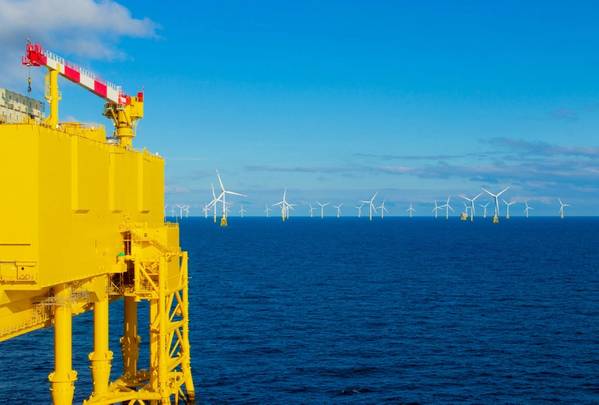
DNV has launched a joint industry project with ten offshore wind and transmission developers to identify changes to electrical standards and standardization needed to enable the connection of High Voltage Direct Current (HVDC) transmission into the United States’ electric grid.
HVDC is an essential component for integrating offshore wind, and other sources of clean energy, reliably and cost-effectively onto the power grid over long distances.
Phase one of the joint industry project (JIP) will run through early 2024, during which DNV and the JIP participants will undertake an inventory of and prioritize key technical issues that stand in the way of the timely and efficient use of HVDC transmission.
After ranking the issues based on the participants’ experiences, the group will identify a stakeholder body most responsible for implementing a solution
Aside from DNV, members of the JIP include Atlantic Shores Offshore Wind, EDF Renewables, Equinor, Invenergy, National Grid Ventures, Ocean Winds, PPL TransLink WindGrid, RWE, Shell, and TotalEnergies.
At the moment, HVDC transmission is not widely used within the U.S., and there are appreciable barriers to its further development that represent a serious risk to the long-term development, growth, and economic feasibility of clean energy projects being propelled by the 2022 Inflation Reduction Act, according to DNV.
In fact, DNV’s recently published Energy Transition North America report found that the U.S. will not achieve its clean energy goals without modernizing its power grid. The forecast shows that more than 5,900 miles of HVDC subsea transmission cables are needed to enable efficient offshore wind development by mid-century.
“To put it simply, there will be no transition without transmission. It doesn’t matter how much clean power generation capacity is online if there is no low-cost, reliable way to get that energy to the grid. HVDC transmission is a key part of the solution, and DNV is proud to be working with leading offshore wind and transmission companies to tackle head on the barriers preventing its deployment,” said Richard SBarnes, Region President, Energy Systems North America at DNV.
Upon completion of phase one, DNV and the JIP participants will use the JIP findings to raise awareness of the barriers to the greater use of HVDC transmission and the stakeholder bodies who can help overcome them.
Through this effort DNV and the JIP participants hope to reduce project risks, accelerate deployment timelines, and ensure that supply chain constraints are appropriately considered.